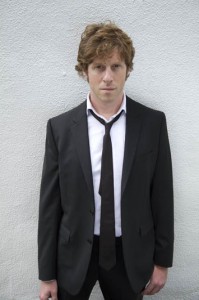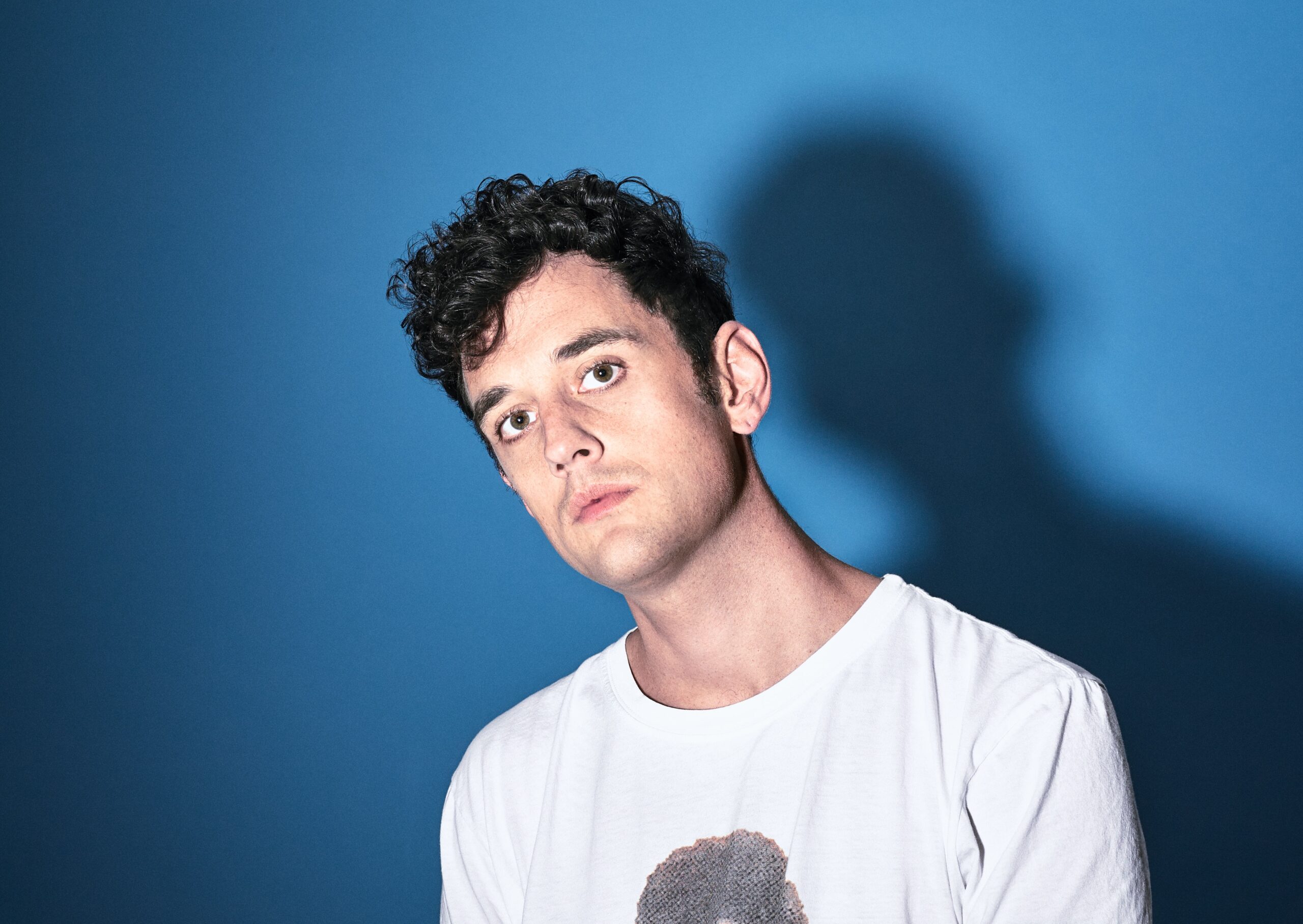
Itaal Shur on Songs, Business and Life in General
This is a re-post of part one of a two-part interview originally published in Fall, 2010.
Itaal Shur is a Grammy winning songwriter, multi-instrumentalist and producer and who is probably best known for co-writing the massive single “Smooth” that re-launched Santana’s career. In addition to writing with Rob Thomas of Matchbox 20 on “Smooth”, Itaal has also written songs with or for Carol King, Ricky Martin, Maxwell, Jewel and Lucy Woodward. As one of the most common questions I get from artists is “How do I co-write or write songs for other artists?” I figured I’d ask a guy who has done it many times over with great success.
Music Consultant:
Itaal, thanks for your time. I know you moved to New York in the early 90s. Tell me about how assimilated into the musician community as a kid who just came to NY and didn’t have many contacts or resources?
IS:
I want to preface everything I say right now with… Actually have you read Malcom Gladwell’s new book Outliers?
Music Consultant:
I haven’t. I’ve read two of his other books.
IS:
He talks about how external factors play into and aid your path to success. We want to believe that it’s all hard work and determination but there are these external factors that happen which we could call “luck,” that enable you to achieve certain successes, like Bill Gates had a chance to program computers at age 16 because there was one at his school — where the same guy with the same intelligence would not have had that opportunity and thus probably would not have had the road to success that Gates had.
It’s a pretty nerdy world we live in right now. It’s not like, “Hey, let’s get high and play music and some manager will take care of me and a record company will promote, I’m just the artist.” We live in a very hands-on, nerdy, “I’m promoting myself’ kind of world more than ever before. So the story is so much different now in terms of music. I’m just saying this so people realize that the world has changed a lot and some of the things that helped me might not work nowadays.
Music Consultant:
I agree that things have changed but I do also have a certain belief that people haven’t changed in spite of all the technology, and the way you navigate through the world – it might have different forms today – but that having a method of socializing and building a community is very important.
IS:
Yes, but the music business and the way the monetary aspect of the music business is has changed a lot, and that’s a big thing.
Music Consultant:
No argument here. Take me back to the beginning.
IS:
I was born in L.A. and grew up in Seattle and Cincinnati. My father was a very well-known composer of Jewish music. He’s a professor at Hebrew Union College in Cincinnati – liturgical music. He’s one of the foremost composers of Jewish music. My mom’s a choreographer. I was born in a big family full of musicians. In Cincinnati I had already been in a band that was really successful in the whole tri-state area. We had record companies looking at us and played to a lot of people. I had already had some success, but then I stopped all that and went to music school and studied jazz for a while. I went to college for only one year at the College Conservatory of Music in Cincinnati, and I studied jazz and arranging and composition. I already knew a lot because I was a music fiend. I already had a music studio and had a lot of equipment that I bought on my own money working. I was already producing and making things happen in Cincinnati. What brought me to New York actually was that I was supposed to go to the New School, but that didn’t turn out. I was interested in the whole downtown Knitting Factory avant-garde scene. I already had experience in all kinds of other music, so that’s what I thought was the new, fresh thing. When I came to New York I went to see a lot of shows and things that I liked, but I had to work for a while. It took about three years for me to get to a point where I could make my living only from music. I was working as a waiter, but I played a lot of piano bars – which they had a lot more of in those days. I would go and improvise for hours while people ate dinner, or I would play at open mic nights and play for singers and take whatever gig I could.
Music Consultant:
Tell me about that hustle a little bit, because I know tons of musicians in New York that are having trouble getting gigs.
IS:
I knew some people when I came to New York. I knew this really great guitar player named Jean Paul Borelli, he was part of the Knitting Factory scene, and he was really open and nice to me. He introduced a lot of people to me. I would go to the Village Voice and look for gigs, and since I played piano I would try to get gigs accompanying people. I would look in the Village Voice and there were always singers looking for accompanists, or I would go to open mic nights and went there and asked if I could play the piano there. I’m not the best sight reader, but give me chords and a lead sheet, and I can improvise. I can fake almost any song because I hear the harmony in my head, if that makes any sense. I didn’t need sheet music I could just say, “What are the chords?” and start playing.
I started to meet people because I would hang out. I met this Moroccan guy, Hassan Hakmoun who became pretty well known. He worked with Peter Gabriel and had a band called Zahar that I saw on TV when David Sandborn had that after-hours show. I met him through someone else, and he said, “Do you want to be in my band?” And we were playing the Knitting Factory and a lot of great places. He was mixing Moroccan music with funk and rock. We did that for a while. Then what happened was that I was looking for gigs and playing gigs, but there were a lot of cats I met that were way better than me in terms of jazz. They could just pick up anything and play it super fast. I’m a good improviser but more a composer who improvises if that makes any sense.
Music Consultant:
When did the Giant Step / Groove Collective thing come about?
*** Editor’s note – if you were seeing shows in the NYC area in the 90s you would remember the Acid Jazz / funk nights promoted by Giant Step – it was a real movement and a real moment in time. Groove Collective was one of the flagship artists of this movement***
IS:
I was kind of on the outs of this avant-garde jazz scene. I wasn’t deep in it, but what happened was that I started to really not like that music anymore. It was interesting, but my pop side started to come out and songs again. What happened was the first year I was working tons of jobs and had gigs here and there with Jean Paul and piano gigs and sometimes some other people, and then I met Hassan and started playing with him and started getting more into that world of playing gigs.
Then around ‘91 or ‘92 I saw an ad for Giant Step and went there at S.O.B.s and there were four people. I met the flute player and said, “I want to play here.” And he let me play there, and that’s really what helped me right there. I was working at World Yacht as a back waiter delivering food on these big boats. I started to play there on Thursdays, and we started to just play funky jazz with a DJ and it stated to become the thing. It really opened up my whole social and music life, and then we started to say, “Hey, let’s start the Groove Collective.” I think I had one more stint as a job, but in the meantime this whole time also I was working with singers and had some equipment like 4-tracks and sequencers and I was doing demos for people writing songs. And I would do a song for $100. I would write and produce.
There are two things that really changed my life. First, my brother loaned me money to buy a sampler, and I started to play with Groove Collective. Once I got a sampler, I could sample beats and I could get into hip hop and have all the beats, but we had to buy those records or ask people to give you songs on disk. That’s when my production started to get better. I was in Groove Collective, and we started to get more popular, and Giant Step started to get more popular – we started to meet more and more and more people and then at the same time I met some other people that started to like my productions, and I remember my last job, I would go to work and stay up all night doing beats – R&B and all kinds of beats. I had break-beats now, so my sound sounded current, because I wasn’t using drum machines anymore. If you’ll remember in the early 90s everything was about break-beats. That just pushed me into a whole other thing, and I started to meet people. I met Maxwell and D’Angelo and all these other people, and I also had this manager who would take my stuff to the record companies and get me real productions for $8,000-$10,000. And then I started meeting all these other performers. I was doing their music for them and waiting for them to get deals. So I was hustling as a producer and hustling in Groove Collective. I was always interested in doing my projects. I only did those piano gigs to make money, but once I didn’t have to do that anymore I stopped.
I hung out a lot. I was young and not just a nerdy musician. I was going to clubs and meeting girls and enjoying New York. I had no money, but I was out there trying to make things happen. I was always looking at different options. I was writing demos for people, trying to write songs with other artists. But the Groove Collective was what brought me visibility. When Groove Collective blew up in New York, and we had huge shows. It was just like this spontaneous reaction. I was part of a movement that happens once in a while that people latch onto for a good three or five years.
Music Consultant:
Giant Step nights were big. I saw you. I saw Jamiroquai. I saw so many people from that kind of sound.
IS:
It was just this spontaneous happening, and I just happened to be a part of it. Those are the lucky things that happened – these things that you fall into. I also think I’m a pretty good social person. I’m good with people…
Music Consultant:
It sounds like you network well. I don’t think people end up in those things because they are unpleasant in a social situation or look at their shoes the whole time.
IS:
Yeah. I was also interested in meeting a lot of girls and really having a good time in New York. I wanted to enjoy myself. The first couple years were kind of tough, but I started to get more of a New Yorker and enjoying myself and going out. Even when you’re hustling, you are saying, “This is a great city, and I want to enjoy myself.” There was a very spontaneous thing that happened at that time. There was the meeting of the minds of a lot of people.
Music Consultant:
When did you start getting calls from people who were established for your production skills? How did you make that transition?
IS:
I already had some stuff from people that were established, but it just didn’t come through. I had demos with them – new artists that were signed to labels. What happened was I just made tons of instrumentals, everywhere from straight-up Dre funk or Sade type music and some Nirvana-ish stuff. I was just making instrumentals, and those instrumentals got me in the door, because they could see that I was really versatile and I could do a lot of different kinds of stuff. They liked my stuff, and it was all on cassette. Having a lot of instrumentals can help a songwriter, because there’s a lot of room for someone to visualize what’s on top or who could be the singer. That’s why hip hop producers are not producers in the same sense as Mutt Lang, where they are responsible for incredible vocal production and a huge sound. They write a hot beat, and that hot beat gives them 50% publishing if it’s just with them and the rapper. But they don’t have to write any melodies. Most of them, that is. But what I’m getting at is that their beat or instrumental is what drives the music, and that’s what’s driven pop music except for band-driven music – hip hop and dance, which has turned into pop music. Basically, it comes from an instrumental standpoint and not from a words and melody standpoint, because the instrumental is what has changed the sound of music. The songs, I don’t think they are much different from 20-30 years ago. You hear a lot of songs on the radio, and they could’ve been done 15 years ago. They’re not that strikingly different. But it’s the sounds and the beats and everything else. That’s what really helped me a lot: sitting around making beats all the time and recording and recording and making new sounds so I could show people what I had.
What happened is, through that, with Groove Collective I met Maxwell and we worked together and wrote “Ascension.” I worked with Angie Stone when she had a band called Vertical Horizon. I was going to labels also a lot. I had a manager at the time who got me a lot of meetings with labels. And I would go there and play my instrumentals and he would say, “Hey, do you want to work with So-and-So?” And then Maxwell had some luck with “Ascension,” which actually became a classic R&B song. And then I had a manager from England who was sending me a lot of people from England. The thing is, it’s a numbers game, and you just have to keep writing all the time. You never know when something’s going to work when you’re working with an artist.
I worked with some artists for a few years, but they kind of lacked some ambition to take it to the next level when they had everything going for them. Some of them had deals but they were dropped. I was always working and making things happen. I did some re-mixes too. And another thing that started to happen was I started making all these dance instrumentals and went to small dance labels, and they would give me $1,000 to make small dance tracks. That paid the bills too. And then I did this record Big Muff on Maxi. They gave me not much — $8,000 to do a whole record, but I took it because I didn’t have any money. And I had a whole cool eclectic dance album that had some really great songs on it that people still play in certain lounge compilations. I was doing things at all ends. I was trying to make money at the same time playing with Groove Collective.
Music Consultant:
It sounds like above all else, you’ve consistently written. You’ve consistently put music out.
IS:
Always. I’ve been hustling on all fronts. What happened after Maxwell was that I wanted to do my own thing. So I started working on songwriting again and really working on writing real songs, not just beats. I put a band together of my own music. Lucy Woodward was in my band, and actually Genji from Groove Collective played in my band. We played in a lot of places, and had some labels kind of interested. But at the same time, my new manager told me Santana was looking, and I wrote “Smooth” and kind of abandoned my own project for a while.
I was basically following my muse, and I never became a copycat. I always kind of did my thing, and there was a lot of luck in it. Some of the things I did people liked, and then I would work with people too. But I was always trying to make things I liked. I was never that guy that said, “I’m going to make that song that sounds just like Lady Gaga.”
Music Consultant:
There’s a lot of that out there.
IS:
Yes, which is a whole other kind of thing, which is a very strategic way of making music, and which I have nothing against at all. I know people like that and they are really good at that. But music has always been my life, so I always have to enjoy what I’m doing. If I don’t enjoy music, I’ll do something else.
Please check out Part Two of this interview. For more information about Itaal Shur and his music, Follow Him On Twitter or preview his new music on Facebook







